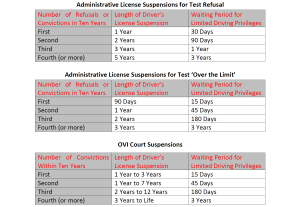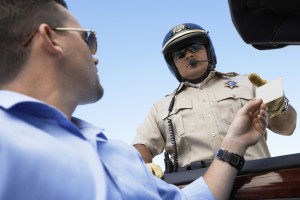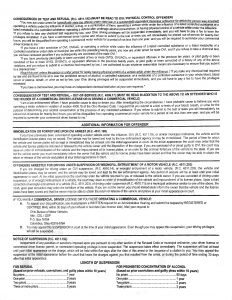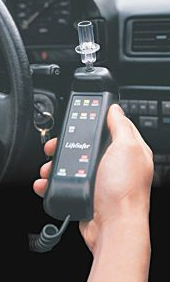 The law governing DUI (called ‘OVI’ in Ohio) is going to change. House Bill 37, signed by Governor Mike DeWine, becomes law on April 9, 2025. The legislation changes four separate areas of law: (1) Driving privileges and ignition interlock devices for OVI license suspensions; (2) Financial penalties for OVI convictions; (3) Oral fluid testing in OVI cases; and (4) Aggravated Vehicular Homicide penalties when a defendant has prior OVI convictions. This article addresses the changes in that order.
The law governing DUI (called ‘OVI’ in Ohio) is going to change. House Bill 37, signed by Governor Mike DeWine, becomes law on April 9, 2025. The legislation changes four separate areas of law: (1) Driving privileges and ignition interlock devices for OVI license suspensions; (2) Financial penalties for OVI convictions; (3) Oral fluid testing in OVI cases; and (4) Aggravated Vehicular Homicide penalties when a defendant has prior OVI convictions. This article addresses the changes in that order.
Articles Posted in DUI/OVI license suspensions
Driving Privileges for DUI/ OVI in Ohio
 I came across an article about a pending bill in South Dakota which proposes expanding the scope of driving privileges for people convicted of DUI (called ‘OVI in Ohio). It reminded me that, in Ohio, driving privileges related to OVI are often misunderstood. This article clarifies Ohio law regarding limited driving privileges and describes how driving privileges work in practice.
I came across an article about a pending bill in South Dakota which proposes expanding the scope of driving privileges for people convicted of DUI (called ‘OVI in Ohio). It reminded me that, in Ohio, driving privileges related to OVI are often misunderstood. This article clarifies Ohio law regarding limited driving privileges and describes how driving privileges work in practice.
Ignition Interlock Devices for Ohio DUI / OVI
 From the 2008 Lindsay Lohan stories to the 2022 news reports about Paul Pelosi’s DUI conviction, the past 14 years have shown a dramatic increase in the use of ignition interlock devices (IIDs) for individuals charged with DUI (called ‘OVI’ in Ohio). A recent report by Coherent Market Insights indicates IIDs in North America will be a $68.5 million industry by 2027. In Ohio, the increased use of IIDs is due, in part, to Annie’s Law. IIDs may be an effective method of preventing OVI, but they do have drawbacks.
From the 2008 Lindsay Lohan stories to the 2022 news reports about Paul Pelosi’s DUI conviction, the past 14 years have shown a dramatic increase in the use of ignition interlock devices (IIDs) for individuals charged with DUI (called ‘OVI’ in Ohio). A recent report by Coherent Market Insights indicates IIDs in North America will be a $68.5 million industry by 2027. In Ohio, the increased use of IIDs is due, in part, to Annie’s Law. IIDs may be an effective method of preventing OVI, but they do have drawbacks.
Effects of Prior Test Refusals and Convictions on Ohio DUI/OVI Sentences
 Suppose a person is charged with DUI (called ‘OVI’ in Ohio) and that person previously refused an alcohol/drug test when arrested for OVI. Can that person’s sentence be enhanced for the current OVI based on the prior refusal? This question was recently addressed by the Wisconsin Supreme Court. In Ohio, this question is addressed in the Ohio OVI statutes. The Ohio OVI statutes are nuanced and do provide consequences for prior convictions and test refusals.
Suppose a person is charged with DUI (called ‘OVI’ in Ohio) and that person previously refused an alcohol/drug test when arrested for OVI. Can that person’s sentence be enhanced for the current OVI based on the prior refusal? This question was recently addressed by the Wisconsin Supreme Court. In Ohio, this question is addressed in the Ohio OVI statutes. The Ohio OVI statutes are nuanced and do provide consequences for prior convictions and test refusals.
What Happens When an Out-of-State Driver Gets a DUI/OVI in Ohio?
 When I vacation in other states, people ask me where I’m from. When I say “Columbus”, I usually have to add “Ohio”. I have learned that very few people travel to Ohio for vacation. Some people do travel here for business and personal trips. Whether here for a business trip, a personal trip, or an improbable vacation, if a driver with a license issued by another state gets a DUI/OVI in Ohio, that person faces consequences in Ohio and may face consequences in the state which issued the driver’s license.
When I vacation in other states, people ask me where I’m from. When I say “Columbus”, I usually have to add “Ohio”. I have learned that very few people travel to Ohio for vacation. Some people do travel here for business and personal trips. Whether here for a business trip, a personal trip, or an improbable vacation, if a driver with a license issued by another state gets a DUI/OVI in Ohio, that person faces consequences in Ohio and may face consequences in the state which issued the driver’s license.
New Book For Those Charged With DUI / OVI: The “Ohio DUI/OVI Guide”
 Many people charged with DUI (called ‘OVI’ in Ohio), especially those charged with a first offense, feel like they are in the dark. They do not understand the elements and consequences of OVI, and they do not know what to expect in the court process. They also are uncertain about whether to hire a lawyer and how to find a good defense attorney. I recently published a new book, the Ohio DUI/OVI Guide, which answers most of the questions people ask in this situation. My hope is that those who read the guide will no longer be in the dark.
Many people charged with DUI (called ‘OVI’ in Ohio), especially those charged with a first offense, feel like they are in the dark. They do not understand the elements and consequences of OVI, and they do not know what to expect in the court process. They also are uncertain about whether to hire a lawyer and how to find a good defense attorney. I recently published a new book, the Ohio DUI/OVI Guide, which answers most of the questions people ask in this situation. My hope is that those who read the guide will no longer be in the dark.
Can You Be Pulled Over In Ohio For Someone Else’s Crime?
 Imagine for a minute that your car is in the shop. You have some errands to run, so you borrow someone else’s car. A friend, a family member, a coworker, whomever. As you’re driving to the store, you see a police cruiser activate its lights and sirens to pull you over. You weren’t speeding, you didn’t drive over the lane line, you followed every traffic rule in the book. So why are you being pulled over? The officer walks up to your window and says you were stopped because the officer ran the car’s license plate and learned the registered owner of the car had their license revoked. The officer didn’t make any effort to determine whether that registered owner was actually driving the car: he just saw the revocation and pulled you over.
Imagine for a minute that your car is in the shop. You have some errands to run, so you borrow someone else’s car. A friend, a family member, a coworker, whomever. As you’re driving to the store, you see a police cruiser activate its lights and sirens to pull you over. You weren’t speeding, you didn’t drive over the lane line, you followed every traffic rule in the book. So why are you being pulled over? The officer walks up to your window and says you were stopped because the officer ran the car’s license plate and learned the registered owner of the car had their license revoked. The officer didn’t make any effort to determine whether that registered owner was actually driving the car: he just saw the revocation and pulled you over.
Is the officer allowed to do this?
Does Court’s Ruling Signal A Change In Thinking About Implied Consent Laws?
 Anyone who has been charged with an OVI / DUI in Ohio has had the pleasure of listening to an officer read several paragraphs from the back of a form provided by the Ohio BMV. This often droll recitation is required by Ohio’s implied consent law, which says that anyone who operates a vehicle in the state implicitly consents to takes a blood/breath/urine test for drugs and/or alcohol if arrested for OVI. An implied consent law similar to Ohio’s was recently found to be unconstitutional by the Georgia Supreme Court.
Anyone who has been charged with an OVI / DUI in Ohio has had the pleasure of listening to an officer read several paragraphs from the back of a form provided by the Ohio BMV. This often droll recitation is required by Ohio’s implied consent law, which says that anyone who operates a vehicle in the state implicitly consents to takes a blood/breath/urine test for drugs and/or alcohol if arrested for OVI. An implied consent law similar to Ohio’s was recently found to be unconstitutional by the Georgia Supreme Court.
When Government Breaks Rules For Ohio Administrative License Suspensions

There are few instances when the government can take our property without first holding a hearing. An Ohio Administrative License Suspension (A.L.S.) is one of those instances. If a driver refuses a chemical test or tests ‘over the limit’, an officer takes the driver’s license on-the-spot. Accordingly, to protect drivers’ rights to due process of law, Ohio has rules which must be followed for an A.L.S to be imposed. A recent A.L.S. case in an Ohio Court of Appeals demonstrates what happens when the rules are not followed.
Annie’s Law Increases Penalties For Ohio DUI / OVI

A few days ago, the state of Ohio began imposing increased penalties for DUI (known in Ohio as OVI). The increased penalties are part of House Bill 388, commonly known as “Annie’s Law”*. The legislation is not really one law but a revision of nearly 20 statutes and creation of one new one. Effective April 6, 2017, “Annie’s Law” provides for longer driver license suspensions, encourages increased use of ignition interlock devices, and results in more defendants being punished as ‘repeat offenders’.
 Columbus OVI/DUI Attorney Blog
Columbus OVI/DUI Attorney Blog

